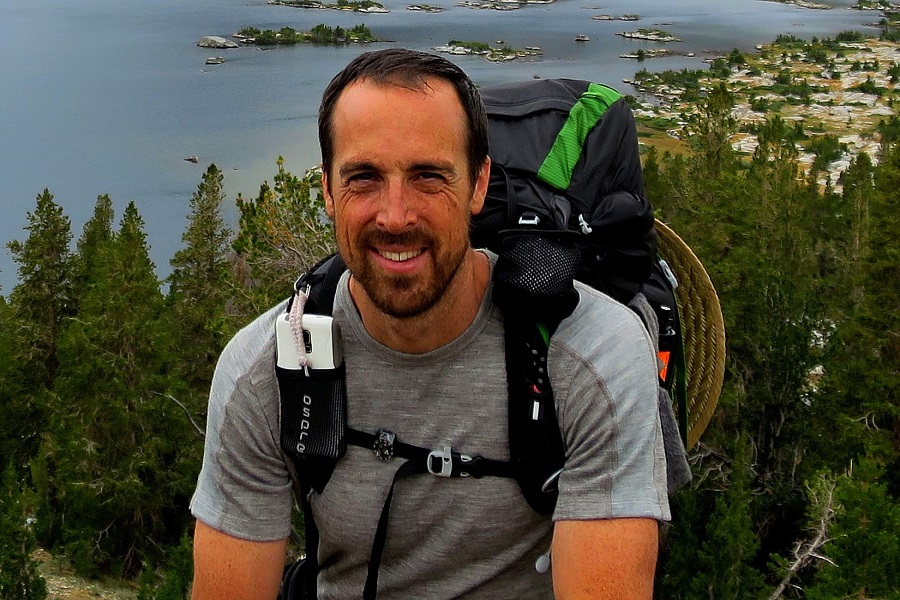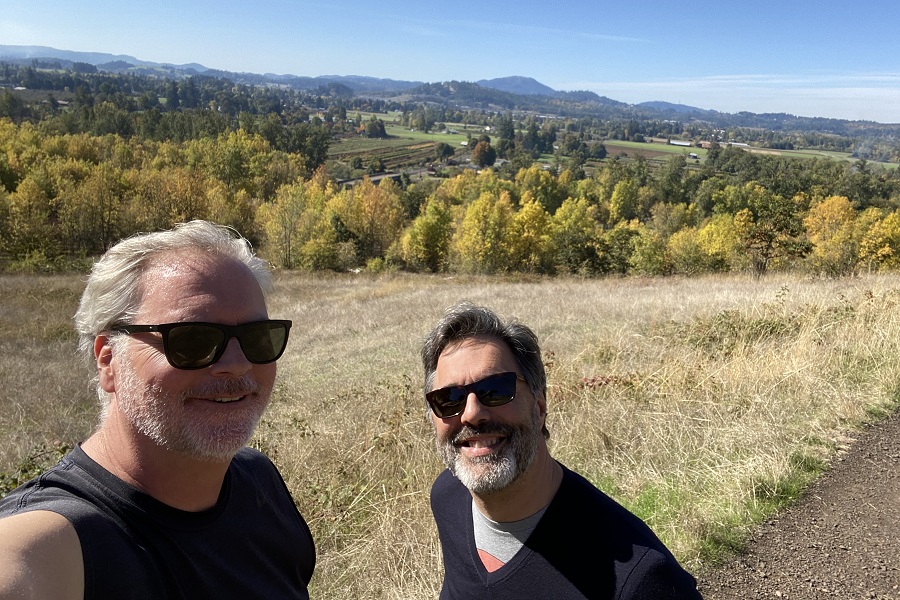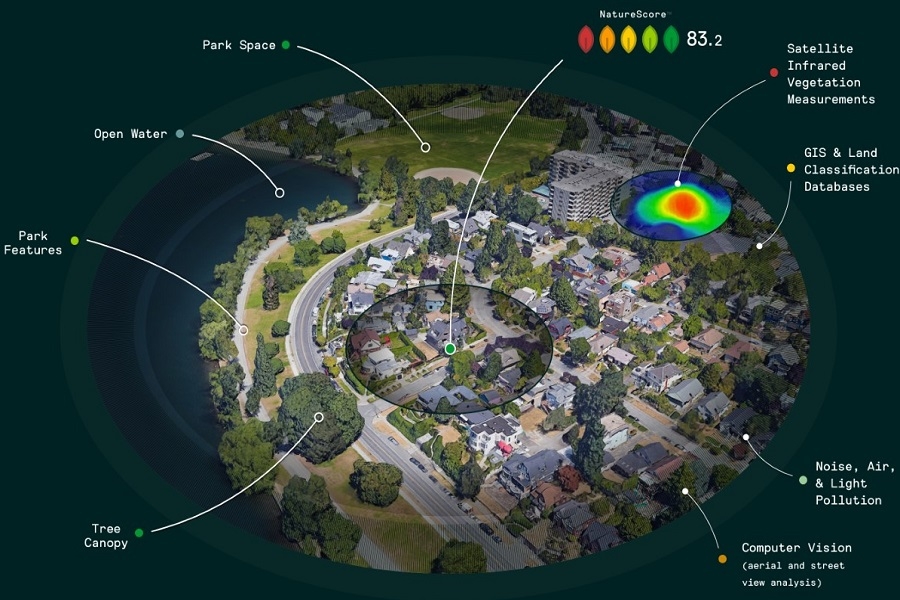Eugene-based health care apps Ksana and NatureQuant bridge the gap between wilderness and mental health, treating time spent in nature as medicine.
Last week, behavioral health monitoring company Ksana Health and nature wellness app NatureQuant announced a joint venture to integrate technologies. The move puts into practice a widely-studied but underutilized field of research linking mental health outcomes with time spent in nature.
The mobile app partnership comes at a turning point in healthcare delivery and mental health studies, and addresses newly-discovered dangers of our screen-based society, which time outdoors helps to correct.
Jared Hanley, founder and CEO of NatureQuant, describes his product as a “nature prescription app.” The app uses personalized data collection tools to inform users when they need to send in nature, and for how long.
The company’s tech also generates “nature scores” for parks and natural settings near the user — combining factors like noise pollution and the presence of natural formations like lakes and trees to determine the overall effect of the environment on a user’s mental wellbeing.

Jared Hanley, founder and CEO of NatureQuant. Credit: Finn Partners
The partnership brings NatureQuant together with Ksana, an app designed for the smart phone. Originally founded as a research project at the Center for Digital Mental Health at the University of Oregon by clinical psychology professor Dr. Nick Allen, Ksana monitors a wide range of user habits, including sleep patterns, physical activity and social interactions. The app sends the data to the user’s doctor to give them a deeper understanding of their daily life, and how to better manage mental health conditions like anxiety and depression .
By using the NatureQuant software, Ksana will add a nature wellness dimension to its suite, becoming even better at diagnosing and prescribing plans to improve users health outcomes.
“When you’re outdoors and you’re reflecting and connecting with nature it gives you a sense of wonder. It deepens your connection to the greater universe. When you put down the phone and go outside all your metrics get better. We’ve seen the trackers. Even your immune system gets better.” says Hanley.
“The concept has been around for thousands of years, but science only began catching up with the philosophy in the last 50.”
 Ksana Health co-founders on a hike, left to right Will Shortt (left) and Dr. Nick Allen (right). Credit: Will Shortt.
Ksana Health co-founders on a hike, left to right Will Shortt (left) and Dr. Nick Allen (right). Credit: Will Shortt.
A 2020 literature review from the American Psychology Association (APA) found exposure to natural environments “improves working memory, cognitive flexibility and attentional control.” A 2019 study from U.K. medical journal The Lancet found time spent in green spaces had a direct correlation with positive mental health outcomes.
Perhaps ironically, the app is also designed to get users to spend less time on their phones and mobile devices. The same APA literature review found the negative psychological effects of excessive indoor screen time could be mitigated by looking at nature.
According to focus and attention expert Chris Bailey, our increasingly digital world causes user’s attention to move rapidly from tab to tab and notification to notification, releasing unnatural levels of dopamine in the brain, creating anxiety and addictive behavior patterns.
“Today we spend 98% of our lives inside, but we have been evolving outside for 99% of our existence. From an evolutionary perspective this is all new, and there’s more and more evidence that there’s harm to that,” says Hanley.
“One thing we do is tell the user, ‘Don’t pay attention to this app.’ We want you to get up and enjoy your surroundings. This is the anti-app app.”
Allen says he became interested in nature’s impact on mental health while doing a mental health retreat for young people in Australia. When students didn’t have their phones and were in natural areas, Allen saw significant behavioral improvements, some of which he described as “transformative.”
The outcomes interested him enough to look into the research on blending nature experiences and mental health.
“I knew some things about it but it was mostly anecdotal. I knew the subject had been clinically researched and was underutilized. I wanted to bring the natural experience into the mental health sphere to show them how it impacts wellbeing.”
Allen says NatureQuant was a “strong fit” for what he wanted to add to his product, and that digital technology makes connections with nature an even bigger factor in mental health.
“Digital technology is not going away. Any idea that we’re going to get rid of our smartphones is fanciful in my opinion, so we need to find a way to use them to improve mental health and improve overall health,” says Allen.
At the heart of this collaboration is the hope that delivering this kind of app-based care will help to popularize the link between lifestyle wellness and overall health. Hanley and Allen are bringing in two research partners from the European Union, where nature-based mental health research is “further along” than it is here, according to Hanley.
Part of popularizing the research is by making it more affordable. Allen is confident that once the benefits of nature experiences are seen by insurance companies they will take pains to ensure their clients receive it. Daily health monitoring, wellness practices and stress reduction have been shown to reduce long-term healthcare needs by preventing the onset of serious ailments.
“The vast majority of insurance company’s costs are for advanced stages of diseases,” says Allen. “They have both a financial and moral interest in reducing those advanced health outcomes.”
To subscribe to Oregon Business, click here.






